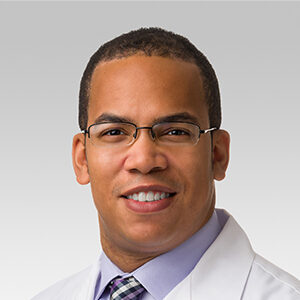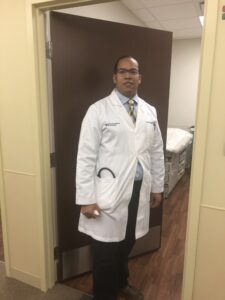When Jonathan Brent, MD, PhD, asks his ALS patients what their goals are, the answer is almost always the same: to find a cure for ALS. “What motivates me,” says Dr. Brent, “is how I can make true on that wish.”

As a neurologist at the Lois Insolia ALS Clinic at our Les Turner ALS Center at Northwestern Medicine, Dr. Brent works to provide comprehensive treatment for ALS patients, such as specializing in neuroprotective strategies, managing symptoms and enrolling patients in clinical trials.
“A big part of my role at the Clinic is care coordination and orienting families to this process, each step of the way. Every family is different, so it’s getting to know what each of their motivations are and how we can best support everyone.”
In addition to being a board-certified neurologist, Dr. Brent is also active in the laboratory. Recently, Dr. Brent received the 2021 Clinical Research Training Scholarship in ALS. Awarded to young scientists involved in clinical research, it consists of a commitment of $65,000 per year for two years, as well as a $10,000 per year stipend to fund education and research-related costs, for a total of $150,000.
“I’m absolutely thrilled to receive the Clinical Research Training Scholarship in ALS,” says Dr. Brent. “Our patients ask us to be bold and creative in our pursuit of novel therapeutics. This award will enable study of a poorly understood cause of ALS with broad relevance to the disease.”
 One area of study will be focused on mutations in the recently discovered ALS gene, KIF5A (kinesin family member 5A), a motor protein that transports cargos out into motor neuron axons, the part of the neuron that conducts electrical impulses. To Dr. Brent, this is critical because, although it is unknown how this specific gene causes ALS, it joins a growing list of ALS genes that reinforces the function of cytoskeletal proteins in ALS and their role in potential therapeutic targets.
One area of study will be focused on mutations in the recently discovered ALS gene, KIF5A (kinesin family member 5A), a motor protein that transports cargos out into motor neuron axons, the part of the neuron that conducts electrical impulses. To Dr. Brent, this is critical because, although it is unknown how this specific gene causes ALS, it joins a growing list of ALS genes that reinforces the function of cytoskeletal proteins in ALS and their role in potential therapeutic targets.
“Understanding more about the specific genes that cause ALS and the specific mechanism of the disease will enable researchers to devise precision medicine,” says Dr. Brent. “These targeted treatments have a much better opportunity to work and a higher probability of curing the disease.”
“The more we understand about the individual genes, the better we can do in finding a cure.”
Your support is vital to ensuring every person living with ALS in the Chicagoland area can receive the help they need. If you would like to make a donation, please click here.

